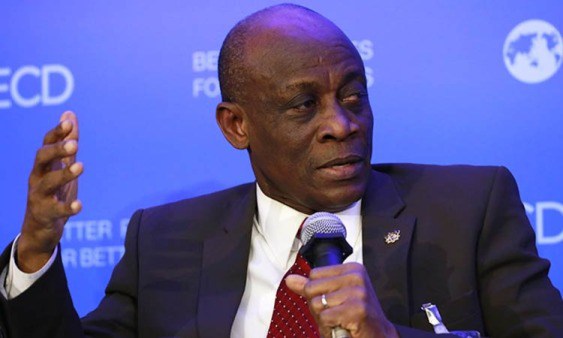
Leverage credibility of IMF, others to stabilise economy — Terkper
A former Minister of Finance, Mr Seth Terkper, has advised the government to open discussions with the International Monetary Fund (IMF), other multilateral institutions and development partners (DPs) on how to leverage their credibility to stabilise the economy and guide it out of what he described as the current turbulence.
Mr Terkper said such a partnership on an economic resuscitation programme would help to regain the confidence of investors to resume lending money to the country.
“We definitely need help and the DPs, rating agencies, fund managers and other multilaterals always look to the IMF before taking any major step in that regard,” the chartered accountant and economist said.
Mr Terkper was sharing his thoughts with the paper last Tuesday on how the government could guide the economy out of the current challenges.
Urgency
He also stressed that any alternative strategy that the government would choose to address the current challenges should be implemented quickly to help prevent further deterioration.
He explained that a programme with the IMF would help to address the liquidity crunch that the economy had been embroiled in, leading to the recent downgrade by international ratings agency, Fitch.
“Seeking help from the IMF may seem overly political. However, it is both a political and an economic move and so we need to face reality with regard to the latter,” he said.
Downgrade
The ratings agency last Friday downgraded the country's long-term default rating to B negative with a negative outlook over concerns that the economy faced increased risks in servicing its debts in the medium to long-term.
Fitch blamed the development on loss of access to the international capital market in the second half of last year which meant that the country was unable to borrow.
Benefits
Commenting on the current development, Mr Terkper, who used an IMF programme to guide the economy out of the challenges between 2014 and 2016, said the country’s first priority was to address the liquidity concerns.
He observed that increased expenditure and revenue shortfalls had put the economy in a situation where persistent borrowing was needed to keep government machinery running.
Unfortunately, however, he said not many investors were still enthused about lending the country money due to the high debt levels, large fiscal deficit, the rising interest cost in the midst of stunted revenue growth and a dwindling foreign reserve position.
“We need liquidity. We do not have access to the market and when you do not have access and you also do not have a domestic capital market that is deep enough to finance your issuance, then it becomes more difficult,” he said.
Market confidence
“So, the first critical thing to address is the liquidity issue but you cannot address that if the markets do not have confidence in you. If you have a programme with the IMF as a developing country, it opens doors to technical assistance, where they start asking questions on what is wrong, which expenditures can be cut and what revenues can be raised. That also gives you more access to expertise from the multilateral agencies to solve the urgent challenges,” he added.
He said while the credit from the IMF might not be large, “it will allow us space and time to start making critical payments and initiate changes that engender confidence with investor holding our domestic and external to engage in a refinancing of our debt”.
Real sector
Mr Terkper added that an IMF programme also allowed the World Bank and the African Development Bank (AfDB) in particular to assist with the real sector.
“These are the benefits of a programme, which I like to call a package, that help to address the confidence and return the economy to the path of sustainability,” he said.
The country’s most recent programme with the IMF was entered into in 2015 and ended in April 2019 during which the economy was supported with a credit facility of about $918 million. The funds were disbursed over the programme period.
Consensus
On the issue of consensus for such an arrangement, Mr Terkper said the government should capitalise on recent calls for a national dialogue on the economic challenges to develop a strategy document that it could be used to start the discussions with the IMF, DPs and other multilateral institutions.
He said earlier calls for a dialogue by notable people, including former President John Mahama, Sir Sam Jonah and Mr Kwame Pianim had set the stage for the government to organise a national discourse to build consensus on how to confront the current challenges holistically.